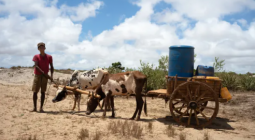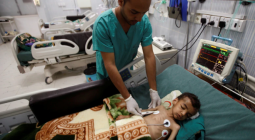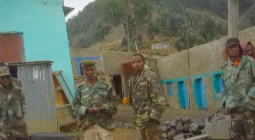350,000 people in famine conditions in Ethiopia’s Tigray
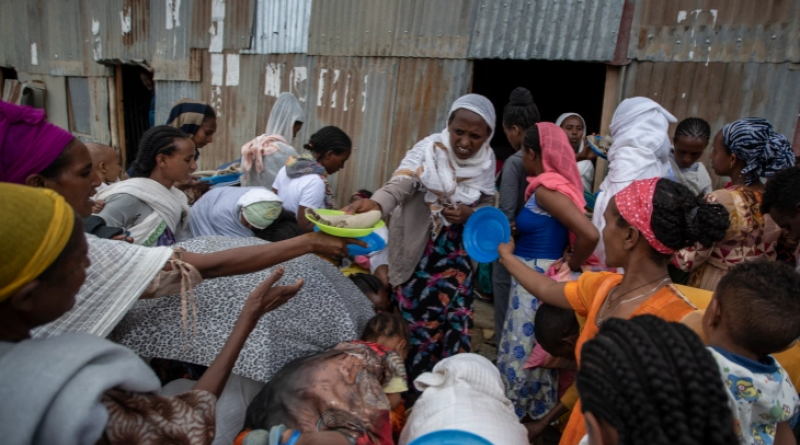
Millions more across Tigray require urgent food and agriculture support to avert further slide towards famine, an analysis says.
Some 350,000 people in Ethiopia’s embattled Tigray region are facing “catastrophic” food shortages, according to an analysis by the United Nations agencies and aid groups.
“There is famine now in Tigray,” UN aid chief Mark Lowcock said after the report’s release on Thursday.
“The number of people in famine conditions … is higher than anywhere in the world, at any moment since a quarter-million Somalis lost their lives in 2011.”
Lowcock said two million more people “were just a step away from those extreme conditions” and lamented the fact that some of the key UN agencies seeking to tackle the crisis have “essentially no money”.
The warning came as the United States and the European Union issued an impassioned plea for greater international efforts to tackle the crisis in a region where more than 90 percent of the population need emergency food aid.
“Famine may already be happening in certain areas, threatening the lives of hundreds of thousands. It’s unconscionable,” Linda Thomas-Greenfield, US ambassador to the UN, told a roundtable event, decrying the failure of the UN Security Council to hold a public meeting to end the crisis.
The Security Council will discuss the conflict on Tuesday, diplomats said, but the session will be held on an informal basis because of Ethiopian opposition to the council taking up the matter – a view shared to varying degrees by several members, including Russia, China, Vietnam, India and African countries.
Thomas-Greenfield said the stakes were high, as the UN urgently appealed for more than $200m to scale up its response.
“We are witnessing a humanitarian nightmare,” Thomas-Greenfield added. “We cannot let Ethiopia starve. We have to act now” to resolve what she called a “man-made” emergency.
The US has announced $181m of additional funding to “deliver life-saving food, agricultural supplies, safe drinking water, shelter, healthcare and essential services” to those in need in Tigray.
But international aid organisations have complained repeatedly that they are being denied access to the region by Ethiopian forces and troops from neighbouring Eritrea.
“To avoid humanitarian catastrophe, the entire international community must act directly and indirectly, quickly and robustly,” EU crisis management commissioner Janez Lenarcic said.
Fighting in Tigray broke out in November 2020 between government troops and the region’s former governing party, the Tigray People’s Liberation Front (TPLF). The violence has killed thousands of civilians and forced some two million from their homes in the mountainous region.
The Integrated Food Security Phase Classification (IPC) analysis concluded that more than 350,000 people were in Catastrophe (IPC Phase 5) – the most extreme warning – between May and June 2021.
“This severe crisis results from the cascading effects of conflict, including population displacements, movement restrictions, limited humanitarian access, loss of harvest and livelihood assets, and dysfunctional or non-existent markets,” it said.
If the conflict deepens or humanitarian assistance is hampered, most areas of Tigray will be at risk of famine, the analysis warned. Even if aid deliveries are stepped up, the situation is expected to worsen through September.
After the report’s release, Taye Atske-Selassie Amde, Ethiopia’s ambassador to the UN, told Al Jazeera the government rejected the IPC analysis, accusing it of not being transparent, describing its methodology as “inefficient and insufficient” and saying that “technical group members that are presumed to be part of this survey but they were not able to participate”.
“We heard it clear and loud this morning what ambassador [Thomas-Greenfield] said. We are not party to the meeting but in general what … we heard some are trying to play the role of God,” he said. “We need support based on dignity and respect.”
Earlier, Mituku Kassa, head of Ethiopia’s National Disaster Prevention and Preparedness Committee, had said a declaration of famine would be incorrect. He accused the TPLF of attacking aid convoys.
“We don’t have any food shortage,” he told a news conference, adding more than 90 percent of people have been provided with aid by five operators.
“TPLF remnant forces … attack the personnel, they attack the trucks with food,” said Kassa.
Ethiopia’s embassy in London said in a statement on Saturday the government “takes its responsibility to end the current suffering of the people of Tigray very seriously and has so far made concerted efforts to comprehensively respond to the humanitarian needs on the ground, in coordination with local and international partners”.
William Davison of the International Crisis Group said “there is no real surprise” about the deterioration of the humanitarian situation.
“Because of the ongoing conflict, large number of farmers have missed the planting season and that has raised concerns even more,” he told Al Jazeera.
“Likewise, there is absolutely nothing surprising about the Ethiopian government’s response,” he said, adding that the government has been “fixated” with achieving military objectives since the beginning of the conflict.
“They said the main phase of the operation was in early November and they say they are in the phase of reconstructing Tigray, rather than fighting and ongoing conflict, let alone battling to prevent a famine – so there is no surprise they are disputing the figures.”
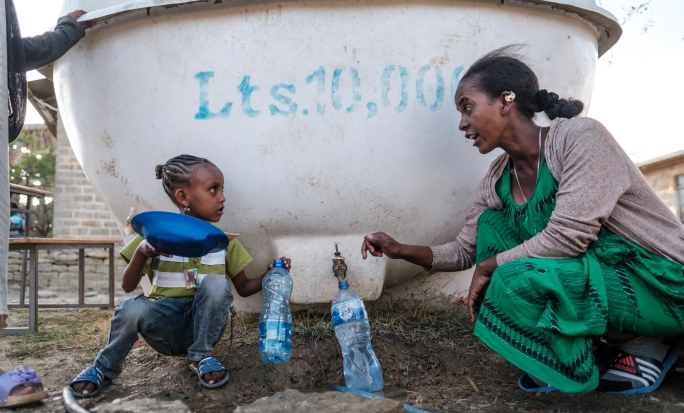
10 June 2021
AL JAZEERA

